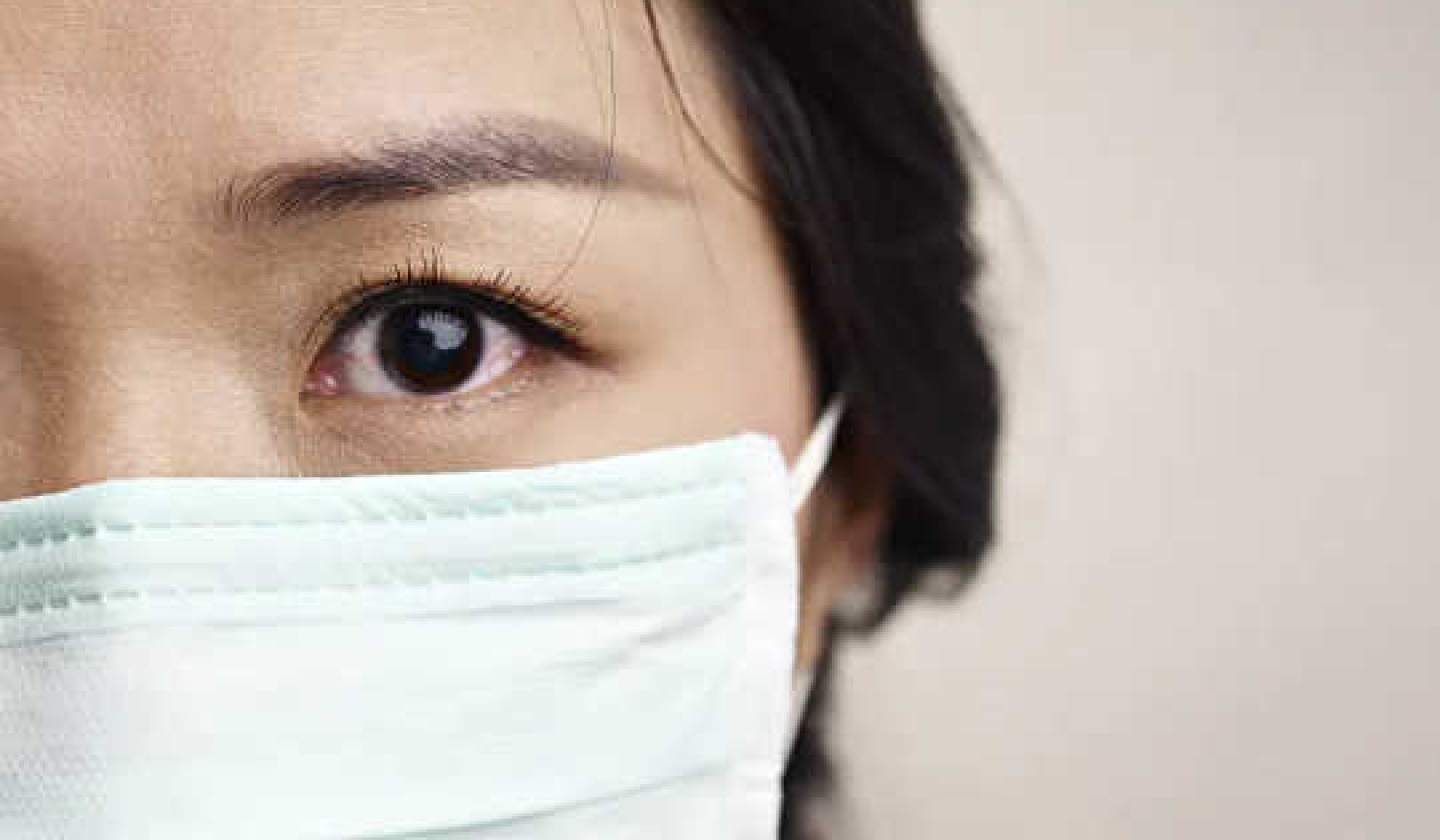
Whether a patient or visitor, hand hygiene while at the hospital is critical. Luis Alvarez/Digital Vision via Getty Images
In this Article:
- What are hospital-acquired infections?
- What steps can you take to protect yourself in healthcare settings?
- The impact of the COVID-19 pandemic on infection rates
- Understanding the emerging threat of Candida auris
- The role of the gut microbiome in infection prevention

Hospital-Acquired Infections: How to Protect Yourselftect Yourself
by Nasia Safdar, University of Wisconsin-Madison.
A new study from the National Institutes of Health shows a jump in both hospital-acquired infections and resistance to the antibiotics used to treat them. The findings are based on data gathered at 120 U.S. hospitals from January 2018 to December 2022, a five-year period that included the COVID-19 pandemic. Dr. Nasia Safdar, a professor of infectious medicine at the University of Wisconsin-Madison, discusses why infection rates have gone up and how you can protect yourself as a hospital patient or visiting family member.
Nasia Safdar discusses the dangers of hospital-acquired infections.
The Conversation has collaborated with SciLine to bring you highlights from the discussion that have been edited for brevity and clarity.
What are health care-associated infections?
Nasia Safdar: These are infections that occur as a result of exposure to the health care system. People coming in for care are typically quite sick, so they’re at risk of acquiring bacteria that can then cause an infection while they’re in the hospital, or shortly after they’re discharged from the hospital.
Why do infections, particularly antibiotic-resistant ones, spread so easily in hospitals and other health care settings?
Nasia Safdar: There is a certain profile of bacteria and germs that develop in health care facilities. And that profile is typically bacteria that are resistant to many commonly used antibiotics.
Patients are already vulnerable and may have compromised immune systems. On top of that, add the risks associated with heavy-duty antibiotic usage, surgeries, procedures and medical devices like urinary catheters and intravascular catheters, which go into the bloodstream. The result is a population at risk for acquiring these bacteria circulating in the environment.
What does it mean for an infection to be antibiotic-resistant?
Nasia Safdar: For any typical infection, there might be a range of choices for treatment. There is what’s called first-line treatment, which is the first antibiotic you would go to. These are typically antibiotics that can treat the infections really well, but without harming the good bacteria that live in your intestine.
But when bacteria get resistant to antibiotics, we have to go to more broad-spectrum antibiotics, which might still be effective for treatment but also might have more side effects or destroy some of the good bacteria in the intestine.
What can hospitals and clinics do to prevent or reduce the spread of infections?
Nasia Safdar: One is infection prevention, and the other is antibiotic stewardship, or the judicious use of antibiotics. Both work synergistically with each other.
Within the infection prevention category, you have hand hygiene, which is critical not just for health care personnel but also for patients themselves.
There is also the use of gowns and gloves, when necessary, to make sure that if one patient has a transmittable condition, that pathway is interrupted by health care workers wearing the right PPE, or personal protective equipment. I also think only using devices such as urinary catheters or intravascular catheters when they’re truly needed is another way to prevent patients from becoming infected.
And then, within the antibiotic stewardship category, there’s a need to prevent the overuse of antibiotics.
What has happened in recent years regarding the rates of health care-associated infections?
Nasia Safdar: Before the pandemic, I think the field was quite optimistic because we were seeing reduced rates of antibiotic-resistant, device-related infections.
A lot of those gains were reversed after the arrival of the pandemic. There was a lot of unnecessary use of antibiotics during that time. And so now we see sharp increases in many of those antibiotic-resistant bacteria. This has led to concern that whatever success we had was fragile and short-lived. We now want to make sure we’re not as vulnerable as we became during the pandemic.
Can you give us some background on Candida auris?
Nasia Safdar: Candida auris is an emerging pathogen. Unlike some other antibiotic-resistant germs in health care systems, this one is a fungus – or a yeast, which is the other terminology for it. And it spreads quite quickly in health care systems.
Candida auris persists in the environment and on the skin and can cause severe bloodstream infections in vulnerable patients. It has been responsible for a number of outbreaks, and the treatment options are much more limited when compared with other infectious germs.
With the arrival of the pandemic, there was a sharp increase in Candida auris infections. They rose by several hundred percent nationwide after smoldering for a while. That sharp spike concerns us.
Can the spread of these infections be reduced by manipulating the gut microbiome?
Nasia Safdar: Many of these germs live in the intestine. They are generally kept at bay by the good bacteria that we all have in our intestines. But sometimes, when we use antibiotics, or use devices or do surgery, those good bacteria are destroyed. And then these germs can find a hospitable niche and grow and cause infections.
Diet plays an important role in keeping our gut microbiome healthy. Most Americans don’t get enough fiber. But a high-fiber diet keeps your gut bacteria healthy and helps you put up more of a resistance to germs when they try to invade.
What can patients or their families do to reduce the odds of getting an infection in a health care setting?
Nasia Safdar: Make sure that both patient and health care workers observe hand hygiene. Use hand sanitizer. It works. It’s convenient. It’s readily available. It’s a great way to prevent infections in health care systems.
But there are some instances where you would want to use soap and water instead. Soap and water is a better option when hands are soiled with blood, stool, diarrhea or other body secretions.
Also ask about the health care system’s rates of infections. Those are things typically tracked closely by health care systems, and the information is often publicly available. Ask your health care team about the medication you’re getting for treatments, particularly if they’re antibiotics. Then ask how long you should take them, what side effects to anticipate, and the effect they’ll have on your gut bacteria.
Watch the full interview to hear more.
SciLine is a free service based at the American Association for the Advancement of Science, a nonprofit that helps journalists include scientific evidence and experts in their news stories.![]()
Nasia Safdar, Professor of Infectious Disease, University of Wisconsin-Madison
Article Recap
Hospital-acquired infections and antibiotic-resistant bacteria pose significant risks to patients and visitors. This article discusses the causes, preventive measures, and the impact of the COVID-19 pandemic on infection rates. Learn how hospitals and individuals can work together to reduce the spread of these dangerous infections.
This article is republished from The Conversation under a Creative Commons license. Read the original article.
Related Books:
The Body Keeps the Score: Brain Mind and Body in the Healing of Trauma
by Bessel van der Kolk
This book explores the connections between trauma and physical and mental health, offering insights and strategies for healing and recovery.
Click for more info or to order
Breath: The New Science of a Lost Art
by James Nestor
This book explores the science and practice of breathing, offering insights and techniques for improving physical and mental health.
Click for more info or to order
The Plant Paradox: The Hidden Dangers in "Healthy" Foods That Cause Disease and Weight Gain
by Steven R. Gundry
This book explores the links between diet, health, and disease, offering insights and strategies for improving overall health and wellness.
Click for more info or to order
The Immunity Code: The New Paradigm for Real Health and Radical Anti-Aging
by Joel Greene
This book offers a new perspective on health and immunity, drawing on principles of epigenetics and offering insights and strategies for optimizing health and aging.
Click for more info or to order
The Complete Guide to Fasting: Heal Your Body Through Intermittent, Alternate-Day, and Extended Fasting
by Dr. Jason Fung and Jimmy Moore
This book explores the science and practice of fasting offering insights and strategies for improving overall health and wellness.
























